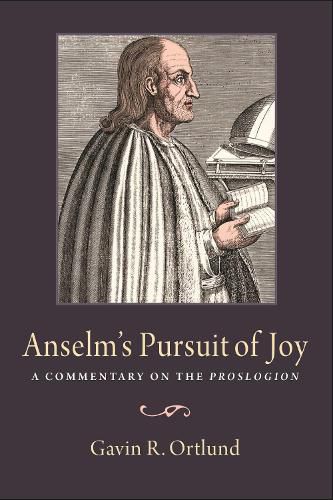Readings Newsletter
Become a Readings Member to make your shopping experience even easier.
Sign in or sign up for free!
You’re not far away from qualifying for FREE standard shipping within Australia
You’ve qualified for FREE standard shipping within Australia
The cart is loading…






The interpretation of Anselm of Canterbury’s Proslogion has a long and rich tradition. However, its study is often narrowly focused on its so-called ontological argument. As a result, engagement with the text of this work tends to be lopsided, and the prayerful purpose that undergirds the whole book is often completely ignored. Even the most rigorous engagements with the Proslogion often have little to say, for instance, about how the prayers of Proslogion 1, 14, and 18 contribute materially to Anselm’s argument, or how his doctrine of God develops organically from the divine formula in the early chapters to the doctrines of eternity, simplicity, and Trinity in later chapters. There are very few works that offer a sustained analysis to Anselm’s flow of thought throughout the entire Proslogion, and no one has explored how Anselm’s doctrine of creaturely joy in heaven in Proslogion 24-26 is a fitting climax and resolution to the book.
Anselm’s Pursuit of Joy attempts a sustained, chapter-by-chapter textual analysis of the Proslogion, and offers the first effort to situate Anselm’s doctrine of heaven in Proslogion 24-26 as the climax of the earlier themes of Anselm’s work. Gavin Ortlund suggests that the basic purpose of Anselm’s argument in the Proslogion is to seek the visio Dei that he articulates as his soul’s deepest desire (Proslogion 1). While Anselm’s argument for God’s existence (Proslogion 2-4) is an important piece of this effort, it is only one step of a larger trajectory of thought that leads Anselm to meditate further on God’s nature as the highest good of the human soul (Proslogion 5-23), and then to anticipate the joy of possessing God in heaven (Proslogion 24-26). In other words, the establishment of God’s existence is only the penultimate consequence of Anselm’s famous formula that than which nothing greater can be thought -his ultimate concern is with the infinite creaturely joy that is entailed by his existence. The Proslogion is, far more than an argument for God’s existence, a meditation on God as the chief happiness of the human soul.
$9.00 standard shipping within Australia
FREE standard shipping within Australia for orders over $100.00
Express & International shipping calculated at checkout
The interpretation of Anselm of Canterbury’s Proslogion has a long and rich tradition. However, its study is often narrowly focused on its so-called ontological argument. As a result, engagement with the text of this work tends to be lopsided, and the prayerful purpose that undergirds the whole book is often completely ignored. Even the most rigorous engagements with the Proslogion often have little to say, for instance, about how the prayers of Proslogion 1, 14, and 18 contribute materially to Anselm’s argument, or how his doctrine of God develops organically from the divine formula in the early chapters to the doctrines of eternity, simplicity, and Trinity in later chapters. There are very few works that offer a sustained analysis to Anselm’s flow of thought throughout the entire Proslogion, and no one has explored how Anselm’s doctrine of creaturely joy in heaven in Proslogion 24-26 is a fitting climax and resolution to the book.
Anselm’s Pursuit of Joy attempts a sustained, chapter-by-chapter textual analysis of the Proslogion, and offers the first effort to situate Anselm’s doctrine of heaven in Proslogion 24-26 as the climax of the earlier themes of Anselm’s work. Gavin Ortlund suggests that the basic purpose of Anselm’s argument in the Proslogion is to seek the visio Dei that he articulates as his soul’s deepest desire (Proslogion 1). While Anselm’s argument for God’s existence (Proslogion 2-4) is an important piece of this effort, it is only one step of a larger trajectory of thought that leads Anselm to meditate further on God’s nature as the highest good of the human soul (Proslogion 5-23), and then to anticipate the joy of possessing God in heaven (Proslogion 24-26). In other words, the establishment of God’s existence is only the penultimate consequence of Anselm’s famous formula that than which nothing greater can be thought -his ultimate concern is with the infinite creaturely joy that is entailed by his existence. The Proslogion is, far more than an argument for God’s existence, a meditation on God as the chief happiness of the human soul.